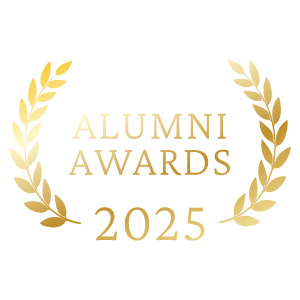 Nearly 8,000 Nelson Institute alumni work in government, business, and nonprofit organizations, applying their knowledge and skills to make the world a better and more sustainable place. Many also volunteer with environmental or humanitarian causes, extending the community-based philosophy that is cultivated within the institute. Each year, the Nelson Institute honors several standout alumni whose work embodies the Wisconsin Idea. Since the first awards in 2014, nearly 50 Nelson alumni have been recognized in two categories: the Rising Star Alumni Award, which honors recent graduates, and the Distinguished Alumni Award, which recognizes graduates with long-term success or impact in their field.
Nearly 8,000 Nelson Institute alumni work in government, business, and nonprofit organizations, applying their knowledge and skills to make the world a better and more sustainable place. Many also volunteer with environmental or humanitarian causes, extending the community-based philosophy that is cultivated within the institute. Each year, the Nelson Institute honors several standout alumni whose work embodies the Wisconsin Idea. Since the first awards in 2014, nearly 50 Nelson alumni have been recognized in two categories: the Rising Star Alumni Award, which honors recent graduates, and the Distinguished Alumni Award, which recognizes graduates with long-term success or impact in their field.
Awardees are honored at the annual Rendezvous on the Terrace event, held this year on September 18. We hope you can join us in celebrating this year’s cohort of honorees!
2025 Nelson Institute Rising Star Alumni Award Winners
Amintas Brandão Jr. PhD’22
Environment and Resources
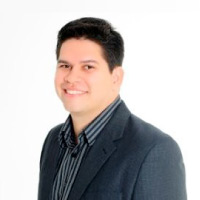 A 2022 graduate of the Nelson Institute’s environment and resources doctoral program, Amintas Brandão Jr.’s land use research on the UW–Madison campus is making a direct impact on small communities in the Brazilian Amazon, where he grew up. Prior to attending the Nelson Institute, Brandão worked for over a decade as researcher at Imazon, a conservation nonprofit located in Pará, Brazil. After coming to Madison and earning his PhD, Brandão joined the Gibbs Land Use and Environment Lab in the Nelson Institute’s Center for Sustainability and the Global Environment, where he leads studies on Amazonian cattle supply chains as a post-doctoral research associate.
A 2022 graduate of the Nelson Institute’s environment and resources doctoral program, Amintas Brandão Jr.’s land use research on the UW–Madison campus is making a direct impact on small communities in the Brazilian Amazon, where he grew up. Prior to attending the Nelson Institute, Brandão worked for over a decade as researcher at Imazon, a conservation nonprofit located in Pará, Brazil. After coming to Madison and earning his PhD, Brandão joined the Gibbs Land Use and Environment Lab in the Nelson Institute’s Center for Sustainability and the Global Environment, where he leads studies on Amazonian cattle supply chains as a post-doctoral research associate.
Maria Daniela Castillo ’17
Environmental Studies, Community and Environmental Scholars Program
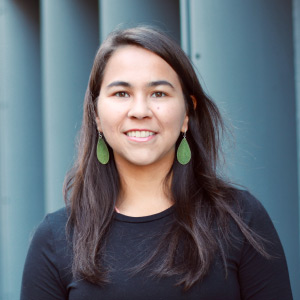 Maria Daniela Castillo, a graduate of the Nelson Institute’s Community and Environmental Scholars Program, graduated in 2017 with a dual degree in both environmental studies and sciences. After graduating, she completed research on air quality and health at renowned institutions across the country, including Boston University’s School of Public Health, George Washington University’s Milken Institute School of Public Health, and Massachusetts Institute of Technology, where she also completed a master’s degree in city planning. Castillo is now a transportation program planner for the City of Boston, where she works to create environmentally and socially responsible transportation corridors throughout the city.
Maria Daniela Castillo, a graduate of the Nelson Institute’s Community and Environmental Scholars Program, graduated in 2017 with a dual degree in both environmental studies and sciences. After graduating, she completed research on air quality and health at renowned institutions across the country, including Boston University’s School of Public Health, George Washington University’s Milken Institute School of Public Health, and Massachusetts Institute of Technology, where she also completed a master’s degree in city planning. Castillo is now a transportation program planner for the City of Boston, where she works to create environmentally and socially responsible transportation corridors throughout the city.
Anne Pearce ’10, MS’16
Environmental Studies, Water Resources Management
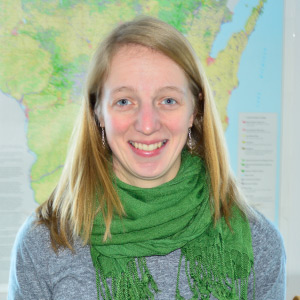 In addition to her environmental studies certificate, Anne Pearce graduated in 2010 with a bachelor’s degree in soil science and biology from the College of Agricultural and Life Sciences. After graduating, she traveled the country exploring environmental career options through curated, seasonal work. She returned to the Nelson Institute and after earning a master’s from the water resources management program in 2016, she worked as an invasive species outreach specialist and volunteered as a restoration work party leader at the UW Arboretum. Today, she works for the Arboretum as its education program manager.
In addition to her environmental studies certificate, Anne Pearce graduated in 2010 with a bachelor’s degree in soil science and biology from the College of Agricultural and Life Sciences. After graduating, she traveled the country exploring environmental career options through curated, seasonal work. She returned to the Nelson Institute and after earning a master’s from the water resources management program in 2016, she worked as an invasive species outreach specialist and volunteered as a restoration work party leader at the UW Arboretum. Today, she works for the Arboretum as its education program manager.
Valerie Stull PhD’18
Environment and Resources
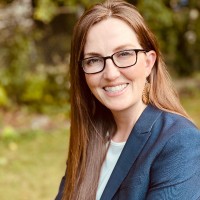 After earning a bachelor’s degree in nutritional science and a master of public health in human nutrition, Valerie Stull continued her academic journey in the Nelson Institute’s environment and resources PhD program. There, she took an interdisciplinary approach to the relationship between nutrition, agriculture, and sustainability, which led to 20+ publications, global project and program development, and independent consulting. Stull is now a faculty associate and research scientist in UW–Madison’s Department of Community and Environmental Sociology and the Nelson Institute’s Center for Sustainability and the Global Environment.
After earning a bachelor’s degree in nutritional science and a master of public health in human nutrition, Valerie Stull continued her academic journey in the Nelson Institute’s environment and resources PhD program. There, she took an interdisciplinary approach to the relationship between nutrition, agriculture, and sustainability, which led to 20+ publications, global project and program development, and independent consulting. Stull is now a faculty associate and research scientist in UW–Madison’s Department of Community and Environmental Sociology and the Nelson Institute’s Center for Sustainability and the Global Environment.
2025 Nelson Institute Distinguished Alumni Award Winners
Stephen Born MS’68
Water Resources Management
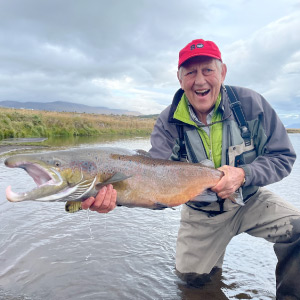 When it comes to Wisconsin conservation and water management, few names are more synonymous than Stephen Born. One of the earliest graduates of the Nelson Institute’s water resources management (WRM) program, Born went on to live out the Wisconsin Idea across sectors, from academia to government to nonprofits. He is a faculty emeritus, former WRM program director, and helped create the Nelson Institute’s energy analysis and policy program during his time as the State of Wisconsin’s energy director. For his work serving on leadership boards, co-chairing initiatives, and advising policymakers, he was inducted into the Wisconsin Conservation Hall of Fame.
When it comes to Wisconsin conservation and water management, few names are more synonymous than Stephen Born. One of the earliest graduates of the Nelson Institute’s water resources management (WRM) program, Born went on to live out the Wisconsin Idea across sectors, from academia to government to nonprofits. He is a faculty emeritus, former WRM program director, and helped create the Nelson Institute’s energy analysis and policy program during his time as the State of Wisconsin’s energy director. For his work serving on leadership boards, co-chairing initiatives, and advising policymakers, he was inducted into the Wisconsin Conservation Hall of Fame.
Susan Swanson MS’96
Water Resources Management
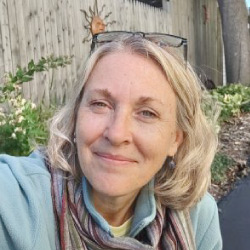 The current director of the Wisconsin Geological and Natural History Survey (WGNHS), Sue Swanson is a triple Badger, holding a master’s in water resources management from the Nelson Institute, a second master’s in geology, and a PhD in hydrogeology. Swanson then became a professor at Beloit College, where she worked for over two decades chairing programs from environmental studies to natural sciences to mathematics. She was recognized with a teaching award and an endowed chair position, both for her efforts in innovative, interdisciplinary teaching and scholarship. In 2023, after a nationwide search, Swanson was named director of WGHNS — the first woman to hold the position.
The current director of the Wisconsin Geological and Natural History Survey (WGNHS), Sue Swanson is a triple Badger, holding a master’s in water resources management from the Nelson Institute, a second master’s in geology, and a PhD in hydrogeology. Swanson then became a professor at Beloit College, where she worked for over two decades chairing programs from environmental studies to natural sciences to mathematics. She was recognized with a teaching award and an endowed chair position, both for her efforts in innovative, interdisciplinary teaching and scholarship. In 2023, after a nationwide search, Swanson was named director of WGHNS — the first woman to hold the position.
Alberto Vargas PhD’98
Environment and Resources
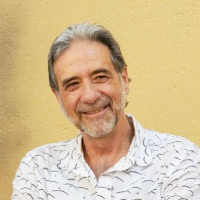 Alberto Vargas is an interdisciplinary scholar whose work bridges agriculture, conservation, and policy. Initially trained as an agronomist in Mexico, he went on to lead ecological research initiatives and advise on sustainable development throughout Latin America. Vargas then came to UW–Madison and the Nelson Institute, where he earned his PhD in land resources and forestry. After finishing his studies, Vargas spent nearly a decade with the Wisconsin Coastal Management Program before returning to the UW as a faculty member. Today, Vargas is the associate director of the Latin American, Caribbean, and Iberian Studies Program, and he holds affiliations with the Nelson Institute, its Center for Culture, History and Environment, the UW-Native Nations Working Group, the Global Health Institute, and the Transdisciplinary Center for Research on Psychoactive Substances in the School of Pharmacy.
Alberto Vargas is an interdisciplinary scholar whose work bridges agriculture, conservation, and policy. Initially trained as an agronomist in Mexico, he went on to lead ecological research initiatives and advise on sustainable development throughout Latin America. Vargas then came to UW–Madison and the Nelson Institute, where he earned his PhD in land resources and forestry. After finishing his studies, Vargas spent nearly a decade with the Wisconsin Coastal Management Program before returning to the UW as a faculty member. Today, Vargas is the associate director of the Latin American, Caribbean, and Iberian Studies Program, and he holds affiliations with the Nelson Institute, its Center for Culture, History and Environment, the UW-Native Nations Working Group, the Global Health Institute, and the Transdisciplinary Center for Research on Psychoactive Substances in the School of Pharmacy.